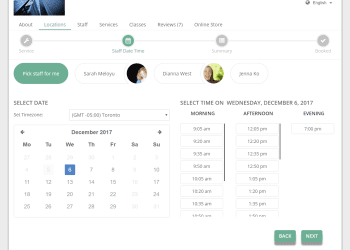The internet has expanded at an incredible rate over the last few decades, from a simple information-sharing network to an almost endless universe of interconnected data. Every second, new web sites are produced, while others are deleted, changed, or forgotten as digital trends move. Despite its immense power and promise, the internet has become overpowering. Searching for reliable information nowadays might feel like wading through noise, clutter, and endless diversions. Users enter a few terms into a search bar, only to be presented with pages of results including unrelated listings, ads, or deceptive material. Although this is a typical experience, it has prompted many people to seek more efficient methods of accessing the information they want. That is where link and address aggregation systems have found their niche, offering a more direct, curated, and dependable route around the web.
In essence, address aggregation sites collect and arrange internet addresses, presenting them in a structured and easily accessible style. Instead than looking for individual pages, users may browse groups of certified links organised by subject, service, or industry. This technique returns some of the simplicity that the internet originally promised, making it easy to go to credible sites without having to dig through untrustworthy results. In 2025, with so many people wanting credible information rapidly, systems like Address World will be vital tools for digital navigation. They not only save time, but also lessen irritation, providing a welcome alternative to the never-ending scrolling and searching that has come to define online life.
The increased popularity of such websites indicates a larger shift in how people interact with the internet. There is a growing desire for efficiency and reliability. While search engines remain dominant, their results are frequently influenced by algorithms that favour advertising, popularity, or sponsored placements. Address aggregation solutions counteract this by displaying collections of addresses that have been reviewed, curated, and classified by humans or artificial computers built to prioritise quality above profit. When visitors visit a platform like 주소월드, they can be certain that the links they discover will bring them to authentic, relevant websites rather than fraudulent ones. This trust is especially important in an age when disinformation, spam, and online scams have made people more careful about where they click.
Another key benefit of address aggregation platforms is their capacity to provide access to specialist or specialised information. Many sectors and interest areas have thousands of associated websites, making it difficult for consumers to decide which ones are worth visiting. A well-organised platform, such as Address World, may make this task easier by collecting and maintaining extensive listings of sites pertinent to various subjects. Whether a user is seeking for government portals, online instructional materials, small company directories, or cultural archives, a well-curated hub may save them hours of searching. This efficiency helps consumers, professionals, and even corporations who rely on reliable web information to make decisions and conduct research.
The value of data verification cannot be emphasised. Every day, innumerable new websites develop, some of which may have broken links, incorrect information, or out-of-date information. To maintain dependability, address aggregation services regularly update and validate their lists. Address World, for example, is well-known for adhering to rigorous criteria while evaluating and updating its link directory. These systems improve the surfing experience by eliminating idle sites and replacing them with functional ones. This dynamic maintenance is one of the primary reasons that address aggregation services continue to gain favour among discerning internet users.
Beyond ease and accuracy, there is also the issue of digital wellness. The average internet user spends several hours each day online, most of which is wasted by repetitive searches and unpleasant navigating. Reducing needless clicks and search cycles may make online life a lot less stressful. Address World allows customers to get straight to what they need, whether it’s a government website, an educational portal, or a speciality service, without being sidetracked by irrelevant results or advertising traps. This decrease in digital clutter promotes a more focused and gratifying surfing experience, which aligns with an increasing trend towards mindful internet use.
The design and functionality of current address aggregation tools also contribute to their popularity. Older directories were frequently clunky, static listings of links that appeared antiquated and impersonal. Newer platforms, such as Address World, combine slick design, straightforward navigation, and intelligent categorisation, making it simple to switch between topics or find new sites within a certain field of interest. Many incorporate complex search options inside the platform itself, allowing users to fine-tune their discovery without leaving the curated environment. This combination of structure and discovery maintains surfing enjoyable while remaining efficient and relevant.
Address aggregation platforms provide additional business value. Companies looking for internet visibility might benefit from being featured in a reputable directory such as Address World. When people rely on a certain aggregation platform to access trustworthy sources, the businesses included there instantly gain from a sense of trust and quality. This is especially crucial for smaller businesses or start-ups that may struggle to compete for visibility using traditional search engine optimisation. By appearing in curated directories, companies receive visibility to a specific audience that is already seeking for the services they offer. In this way, address aggregation platforms benefit both individuals and companies seeking to establish credible digital reputations.
It’s also worth mentioning that these platforms are community-driven. The finest aggregation services frequently adapt to user feedback, constantly upgrading their lists depending on popularity, accuracy, and user ideas. Address World and similar platforms may contain mechanisms that allow users to score and suggest websites, building a feeling of community and trust. This interactive quality turns browsing from a solo chore to a participation experience in which communal feedback contributes to the platform’s trustworthiness. The end result is a dynamic, living directory moulded by both technology and the people who use it.
As technology progresses, address aggregation solutions become more intelligent and adaptable. Artificial intelligence and data analytics are increasingly being used to maintain and refine content. Systems can now identify when a link becomes inactive, or when a website’s ownership or content quality changes. Platforms like as Address World are adopting such methods to keep their listings updated and correct, rather than depending exclusively on hand updates. This combination of automation and curation strikes a balance between speed and discretion, providing the best of both worlds—the efficiency of algorithms and the discernment of human inspection.
The availability of information is another important aspect. Not everyone has the time or technical skills to do extensive web searches, particularly for official or highly specified information. Address aggregation tools make this process easier by providing a user-friendly interface that is accessible to a large range of people. Whether the user is a student, a professional researcher, or simply seeking for basic address information, these platforms remove barriers and ease the process. This democratisation of access is one of the most significant contributions of websites like Address World, since it ensures that the internet stays useful and helpful to individuals of all backgrounds.
One may argue that the proliferation of aggregation platforms is a logical response to the internet’s oversaturation. As the volume of material increases tremendously, people seek out sources that can efficiently curate and filter it. In a way, systems like Address World serve as digital librarians, classifying and organising an ever-expanding library of internet knowledge. By doing so, they contribute to restoring some of the simplicity and structure that the early internet promised before becoming overrun by algorithm-driven content and advertising saturation.
Address aggregation solutions also provide benefits in terms of security. By thoroughly vetting the links they list, these platforms limit the likelihood of visitors encountering dangerous sites or frauds. In an internet environment rife with phishing sites and bogus domains, having a reliable middleman like Address World is crucial. Users may browse with more confidence now that the displayed locations have been verified for validity and safety. This dedication to security strengthens the platform’s overall reliability and makes it an invaluable ally in encouraging safer online behaviours.
Finally, the continued significance of address aggregation sites reflects a larger fact about human activity online. As technology advances, consumers continue to seek simplicity, trust, and clarity. With so much digital information available, tailored discovery is more tempting than ever. Address World exhibits this trend by providing a systematic, efficient, and reassuring method to traverse an otherwise chaotic internet environment. It reminds people that the internet does not have to be intimidating; with the correct tools, it can once again be a source of discovery, learning, and connection.
Aggregation platforms are set to play an increasingly important role in the digital future. They will become more intelligent, personalised, and interwoven into ordinary internet activities. Their primary goal, however, will stay the same: to assist people in finding what they need quickly, precisely, and safely. Address World, for example, serves as a beacon of clarity and ease for consumers seeking order in the midst of digital chaos. In an internet full of transient trends and numerous distractions, such stability is not only pleasant, but also necessary.










